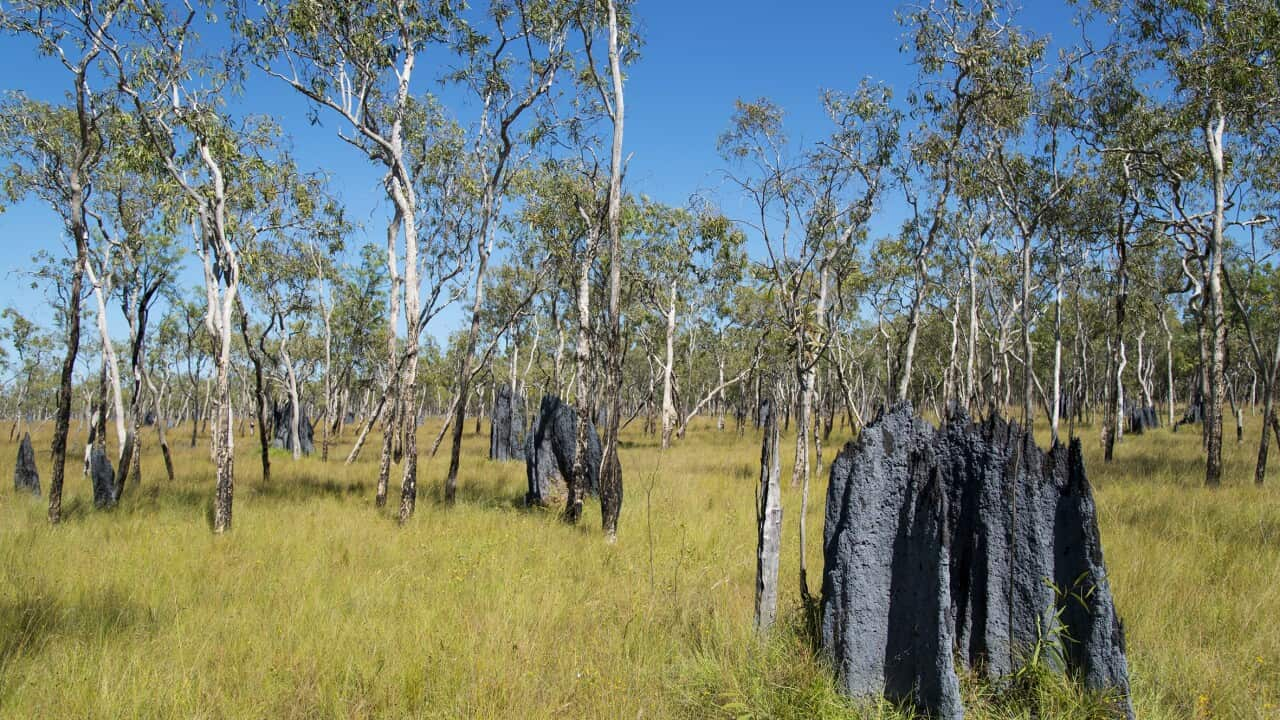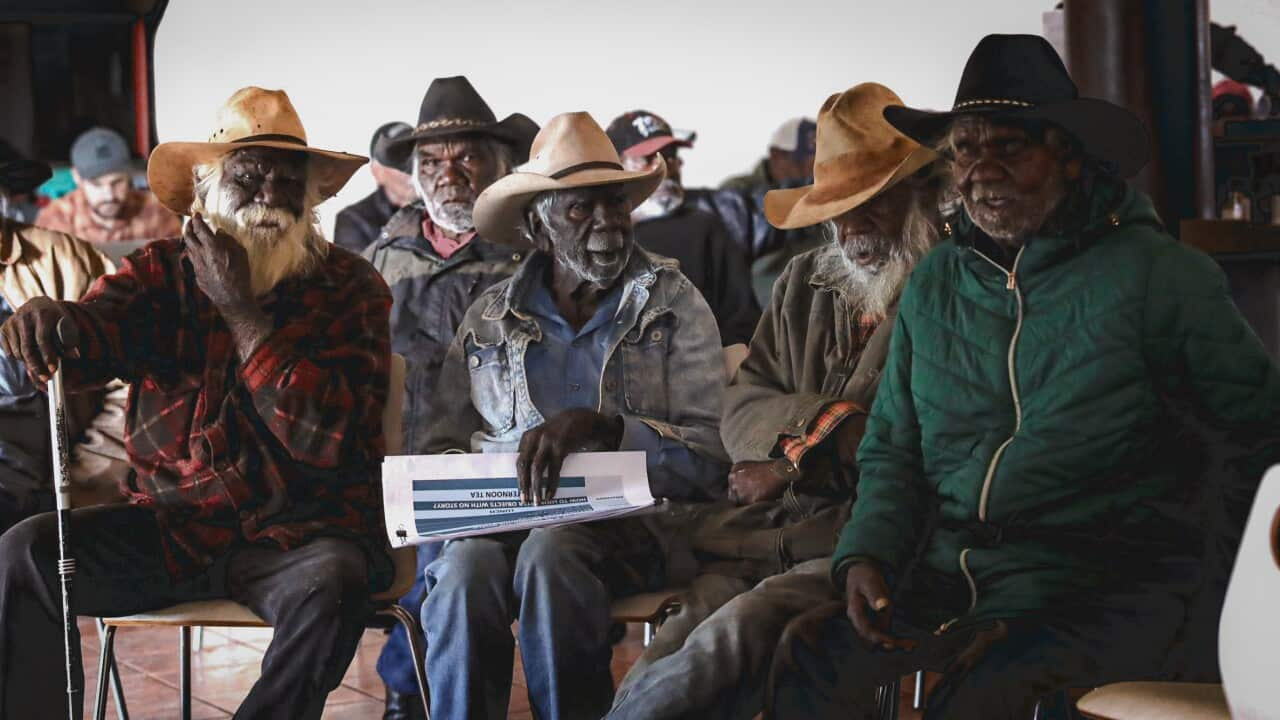A partnership between the Gunaikurnai Land and Waters Aboriginal Corporation and Monash University allowed researchers to excavate two small fire places in Cloggs Cave in the state's Gippsland region.
In those fire places, one the size of a human hand, a single Casuarina stick was buried deep inside.
Chemical analyses revealed both sticks had been smeared with animal or human fat and date back to 11,000 and 12,000 years ago respectively, marking the end of the last Ice Age.
The findings, published in the scientific journal give insight into the rich heritage of one of the world's oldest living cultures.
It links up with descriptions of ritual practices noted by government geologist and ethnographer Alfred Howitt more than 100 years ago.
Mr Howitt previously documented the ritual practices of mulla-mullung, powerful GunaiKurnai medicine men and women.

Ritual stick in Cloggs Cave near the town of Buchan, Victoria. Source: AAP / Supplied by Monash University/PR Image
The throwing stick was then stuck slanting in the ground before a fire was lit underneath it.
The mulla-mullung would chant the name of the sick person, and once the stick fell, the charm was complete.
GunaiKurnai Elder Uncle Russell Mullett said the findings, representing cultural knowledge passed down through 500 generations, were remarkable.
"For these artefacts to survive is just amazing," Uncle Russell said.
"It's a time capsule.
"They've been waiting here all this time for us to learn from them, a reminder that we are a living culture still connected to our ancient past.
"It's a unique opportunity to be able to read the memoirs of our Ancestors and share that with our community."

Uncle Russell Mullett at the entrance of Cloggs Cave. Source: AAP / Supplied by Monash University / PR Image
"The connection of these archaeological finds with recent GunaiKurnai practices demonstrates 12,000 years of knowledge-transfer," professor David said.
"Nowhere else on Earth has archaeological evidence of a very specific cultural practice previously been tracked so far back in time."












